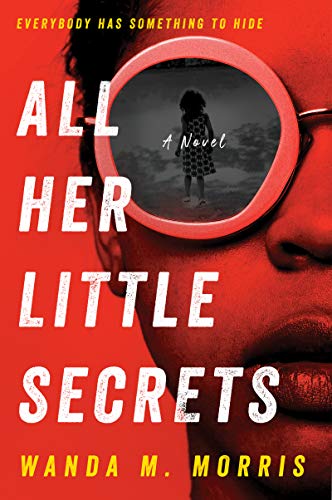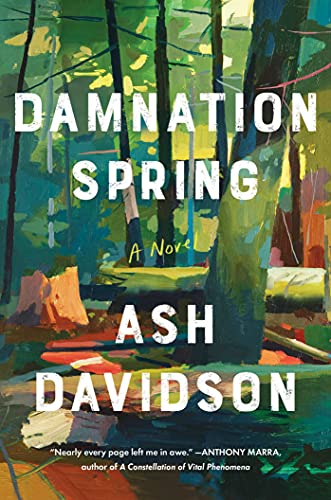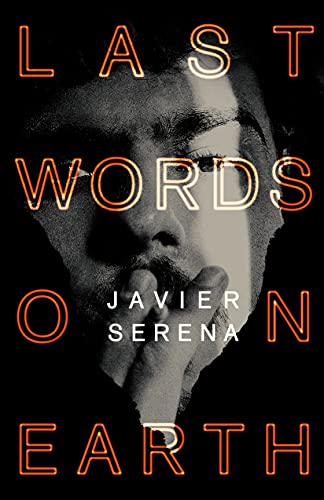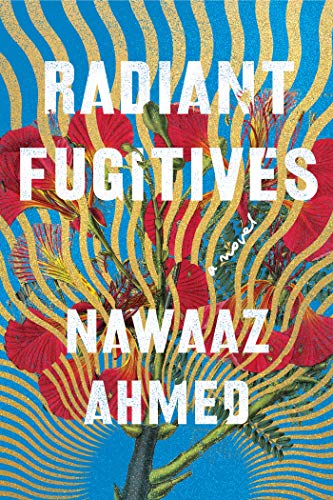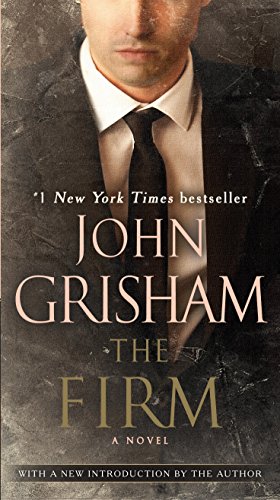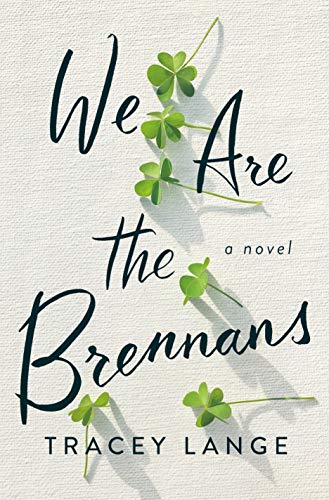Explorations of class, race, and sexuality play out in many of this fall’s notable fiction debuts, including a novel about a young Black woman working in financial services, a South Korean gay romance, and more.
Nawaaz Ahmed: Supersized and Fully Formed
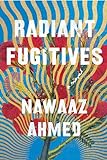 In 1994, Nawaaz Ahmed left India for a graduate program in computer science at Cornell. “I don’t think in India you go around saying, ‘I want to be a writer,’” he says from his home in Brooklyn. Like his debut, Radiant Fugitives (Counterpoint, Aug.), which Publishers Weekly called “dazzling” in a starred review, the path to writing a novel was long and windy, and informed by his political consciousness as a gay Muslim immigrant.
In 1994, Nawaaz Ahmed left India for a graduate program in computer science at Cornell. “I don’t think in India you go around saying, ‘I want to be a writer,’” he says from his home in Brooklyn. Like his debut, Radiant Fugitives (Counterpoint, Aug.), which Publishers Weekly called “dazzling” in a starred review, the path to writing a novel was long and windy, and informed by his political consciousness as a gay Muslim immigrant.
Ahmed took a job in the Bay Area with Inktomi in 2000, touted at the time as the next Microsoft, he says. Two years later its stock plummeted from a peak of $241 to a quarter a share, and the company was sold to Yahoo. By 2007 he’d become involved with book clubs and writing groups mainly comprising other South Asians and went part-time at Yahoo to focus on his writing. In 2009 he left for the University of Michigan, expecting to finish a book by the time his MFA scholarship support ran out. “But it took 10 years,” he adds, laughing.
The first drafts of Radiant Fugitives, about an Indian woman condemned by her father for being queer, were shorter and more focused on a family drama. But as Ahmed became galvanized by the uncertainty around the marriage equality fight during the early Obama years and the rise in anti-Muslim sentiment, after having already taken part in actions with Asian LGBTQ groups in the Bay Area, those issues began entering the book.
He says it was both exciting and scary to write explicitly about homosexuality, because of the small number of gay Muslim writers who were published. “But I was like, how can you not? I have to take part in the struggle for visibility,” he adds.
The draft Ahmed worked on with agent Anjali Singh sprawled to 800 pages, almost twice the length it’d ultimately publish as. Dan Smetanka at Counterpoint read all of it. “It’s that moment when the lightning comes down and your hair is on fire and all of those terrible metaphors that editors use,” he says. “It was such an ambitious draft, supersized and fully formed.”
Xavier Navarro Aquino: A Wicked Dew
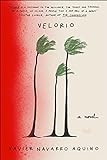 Four days after Hurricane Maria devastated Puerto Rico in 2017, Xavier Navarro Aquino returned there from Lincoln, Nebr., where he was completing a PhD in English, to help his family. His mother lives in Vega Baja, where he was raised, and much of his family lives in various parts of the island’s northern coast.
Four days after Hurricane Maria devastated Puerto Rico in 2017, Xavier Navarro Aquino returned there from Lincoln, Nebr., where he was completing a PhD in English, to help his family. His mother lives in Vega Baja, where he was raised, and much of his family lives in various parts of the island’s northern coast.
“It wasn’t easy for me to process and want to write about it,” Aquino says from his home in Lincoln, where he is preparing to move to South Bend, Ind., to teach at Notre Dame. But from that experience came the idea for a story of a girl named Camila who finds her sister encased in a mudslide. It became the germ for Velorio (HarperVia, Jan. 2022), a polyphonic novel of Maria’s aftermath.
“I used the framework of Lord of the Flies to imagine a society after the natural disaster because it wasn’t far from reality,” Aquino says. “I saw how the rules and laws had degraded, and how degradation mixed with fears of abandonment, which had exacerbated a very fragile electric grid, economic system, and diaspora.”
By then, Aquino already had an agent, Jin Auh, whom he’d met at the Sewanee Writers Conference. During a residency at MacDowell in 2019, he wrote a full draft of Velorio in a fever pitch. “I was very surprised with how it just fell into my imagination and the words would just flow, but it was a strange time,” he says. “I think I felt a little crazy, and told I friend I felt like I was hearing voices.”
When Aquino met with Tara Parsons, editor and associate publisher at HarperVia, he was excited to hear that she understood what he was doing with the multitude of voices, and that she didn’t want him to change it—something Jin had warned him might happen with other editors. One of the most important voices was that of the complex character Urayoán, whom Aquino hesitatingly calls an “antagonist,” because Urayoán speaks to the effects of U.S. colonization, sometimes in ways that are not immediately coherent. “I was sort of trying to draw from Derek Walcott’s commentary on Caliban,” Aquino says. “In The Tempest, Caliban carries the most beautiful language but is often overlooked.”
Natasha Brown: Everybody Hurts
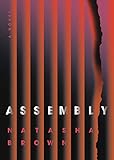 I think STEM careers are really good options for a lot of people,” says Natasha Brown, a writer from London who studied math at Cambridge and spent a decade working in financial services. “They can really be good opportunities to buy yourself some time to produce creative work.”
I think STEM careers are really good options for a lot of people,” says Natasha Brown, a writer from London who studied math at Cambridge and spent a decade working in financial services. “They can really be good opportunities to buy yourself some time to produce creative work.”
In 2019, after writing on the side and taking workshops, Brown received support from the London Writers Award and finished her first novel, Assembly (Little, Brown, Sept.), which PW’s starred review called “a stunning achievement of compressed narrative and fearless articulation.”
Assembly follows a young Black woman working at an investment bank, whose visit to her white fiancé’s family estate is dampened by her recent breast cancer diagnosis, and whose career success is met with blatant racism and sexism from bitter associates at her workplace. Clocking in at 112 pages with a small trim size, and punctuated by fragments of prose and verse along with references to theories from bell hooks and Claudia Rankine, it’s not a conventional novel, but it tells an age-old story.
“It’s like a ‘to be or not to be’ story, but about race,” says Jean Garnett, an editor at Little, Brown, who acquired the book during Frankfurt last year. “You have a character who’s thinking, is this worth enduring? Except Natasha’s character is way less whiny and indulgent than Hamlet.”
It’s a story that’s more commonly told in white literary fiction. “The stories I’ve really enjoyed have been about middle-class lack of satisfaction,” Brown says. “But for people of color, for Black women specifically, if we do get a story about someone being successful, it’s always a story of being grateful. It’s kind of limiting and a little bit dehumanizing to not recognize that everybody feels dissatisfied with their lives sometimes.”
Reading Rankine’s Citizen and Don’t Let Me Be Lonely helped show Brown new possibilities for writing about Black experiences, she says, and Lydia Davis’s and Maggie Nelson’s work opened up a sense of playfulness in mixing genres and weaving tangential threads.
As a result, Assembly sometimes has the feeling of an essay. “The narrator looks out at the reader to say, ‘I see you,’” Garnett says. “I’m not encased in a fictional universe, I’m here in the same world and we’re having a conversation about that world.”
Ash Davidson: Paradise Lost
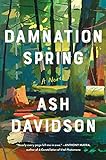 Ash Davidson was too young to remember her early few years in Klamath, Calif., but her parents’ stories formed a powerful mythology of a seaside idyll destroyed by logging. “My parents were very clear that this was the most beautiful place they’d ever lived,” she says. But the herbicides used by loggers poisoned their drinking water, prompting the family to develop a habit of never drinking from a tap, no matter where they are.
Ash Davidson was too young to remember her early few years in Klamath, Calif., but her parents’ stories formed a powerful mythology of a seaside idyll destroyed by logging. “My parents were very clear that this was the most beautiful place they’d ever lived,” she says. But the herbicides used by loggers poisoned their drinking water, prompting the family to develop a habit of never drinking from a tap, no matter where they are.
Davidson’s novel, Damnation Spring (Scribner, Aug.), is set in a place similar to Klamath in the 1970s, where a logger buys a grove of redwoods to invest in his family’s future. It explores the tension between a working-class community’s economic livelihood, the health risks posed by logging, and the environmentalists who spotlight its devastation. PW called it a “heart-wrenching modern American tragedy.”
To write the book, Davidson took a trip back to Klamath for research, hoping to talk to people who were affected by the pollution. “I didn’t know what the hell I was doing, and couldn’t get people to speak with me,” she says. Then, with her mother, she went to a community dinner. “We walked in and you could just hear the heads turn.”
After a woman recognized her mother, she introduced Davidson to a former logger. “He told me he’d actually been sprayed while he was working, and shared how it affected his eyes, his breathing, and his skin,” she says. “That was the moment that I realized: this person’s family was drinking the water.”
At that point, Davidson says, she was able to approach the characters with empathy.
The book took a decade to write, and her agent, Chris Parris-Lamb, helped her across the finish line. They’d met when Davidson was working on short stories at the Iowa Writers’ Workshop and he suggested she write a novel. “I sent him an email five years later saying, ‘Hi, I don’t know if you remember me, but you were right, and here’s this novel, would you look at it?’ ” she recalls.
He did, and when Parris-Lamb sent it to Kathy Belden, executive editor at Scribner, it didn’t take long for her to respond. “I like fiction that does societal work being done in service of the story,” Belden says. “It feels like an old-fashioned big American novel.”
Jo Hamya: Do They Owe Us a Living?
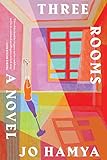 When did it become ridiculous to think that a stable economy and a fair housing market were reasonable expectations?” asks the unnamed narrator of Jo Hamya’s Three Rooms (Houghton Mifflin Harcourt, Aug.). It’s a spiky riff on Virginia Woolf’s A Room of One’s Own, dialing into the dwindling prospects for university graduates in the U.K. and the conservative politics behind Brexit.
When did it become ridiculous to think that a stable economy and a fair housing market were reasonable expectations?” asks the unnamed narrator of Jo Hamya’s Three Rooms (Houghton Mifflin Harcourt, Aug.). It’s a spiky riff on Virginia Woolf’s A Room of One’s Own, dialing into the dwindling prospects for university graduates in the U.K. and the conservative politics behind Brexit.
After taking an MA at Oxford, Hamya faced her share of precarity while working an unstable magazine job, which she ended up quitting because it didn’t line up with her long-range goal to be a university lecturer. “My protagonist is the sort of person I would hate to end up becoming,” Hamya says. “She’s very indecisive and ineffectual, and confined by circumstance.”
The book developed after the Brexit referendum as Hamya and her friends began to feel that they would never be able to buy their own homes. Hamya is half Polish and grew up watching her parents achieve progressively better lives. “They had kind of gotten the better deal out of Blairism and social mobility,” she says, “and I had maybe slightly naive expectations of how life should turn out.”
Hamya finished the book in March 2020, a week or two before England went into lockdown. “I’d sent it to a handful of agents who hadn’t responded, and so I’d sort of given up,” she says. But a few friends asked to read the manuscript, one of whom worked at Penguin, and though the friend said she wouldn’t be able to do anything, the book got passed around. Two weeks later Hamya received a call from Ana Fletcher, senior editor at Jonathan Cape.
“Sort of halfway through the conversation I began to clock that she was interested in acquiring it,” Hamya says. Fletcher helped her connect with agent Harriet Moore to negotiate the deal, and by August, the North American rights were sold to HMH at auction.
Hamya says she wasn’t sure how the book would be received in the U.S., given its focus on British politics, and was heartened to receive an enthusiastic letter from a bookseller in Alabama. “Maybe it’s because there was this overlap of news feeds in 2016 and 2020, where we had Boris Johnson and you guys had Trump,” she notes. “Both sides of the Atlantic were melting.”
Tracey Lange: Breaking the Bonds
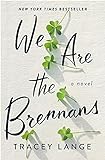 In the opening scene of Tracey Lange’s We Are the Brennans (Celadon, Aug.), a young woman named Sunday Brennan drives into a Los Angeles freeway divider while drunk, prompting her bar-owner brother to bring her back home to New York City. With the crash, Sunday has reached the end of the line in an attempt to start a new life away from her Irish Catholic family.
In the opening scene of Tracey Lange’s We Are the Brennans (Celadon, Aug.), a young woman named Sunday Brennan drives into a Los Angeles freeway divider while drunk, prompting her bar-owner brother to bring her back home to New York City. With the crash, Sunday has reached the end of the line in an attempt to start a new life away from her Irish Catholic family.
“I come from a big Irish Catholic crew,” says Lange, who now lives in Oregon and was raised in an Upper West Side apartment building where her father worked as the super. “My dad was one of 15 kids from Ireland, and I just loved being around that kind of clan feeling. There’s so much fodder to dig into.”
The story isn’t autobiographical, but Lange, like Sunday, also headed west once she came of age, settling first in Arizona, where, with her husband, she built and ran a business providing behavioral health services for 15 years. “The focus was so much about the family, and what makes a family work and not work,” she says.
Several years ago, Lange was able to focus solely on her writing, and completed the manuscript while enrolled in an online novel writing program at Stanford. “The program came at a great time because I trying to wrap my mind around the novel’s multiple point of view,” she says. In doing so, she was able to get underneath the surface of the guarded members of the Brennan clan.
Describing her own extended family, Lange says, “There’s a great closeness, but there’s also a lot of hiding flaws and a lot of shame, whether it’s mental illness issues, drug use, financial worries, or divorce. I felt very connected to Sunday, growing up in a family where there’s a bit of keeping things on the down low.”
Lange met agent Stephanie Cabot at a writers’ conference in Kauai, Hawaii. Cabot was impressed by her pitch and her professionalism, and saw how the book fit in her wheelhouse. “I’m always drawn to this idea that history is always with us,” Cabot says. “I think she pulled it off really well. There’s a lot of heart and emotion and compassion.”
Claire Luchette: Out of the Habit
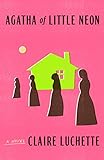 In summer 2016, Claire Luchette was in graduate school at the University of Oregon, broke and eating expired yogurt while working on short stories. She remembered something her nun macroeconomics teacher would always say at her Jesuit high school back in Chicago: “There’s no such thing as a free lunch.” The line inspired her to write the story “New Bees,” which was published in Ploughshares and became her meal ticket for a series of writing residencies.
In summer 2016, Claire Luchette was in graduate school at the University of Oregon, broke and eating expired yogurt while working on short stories. She remembered something her nun macroeconomics teacher would always say at her Jesuit high school back in Chicago: “There’s no such thing as a free lunch.” The line inspired her to write the story “New Bees,” which was published in Ploughshares and became her meal ticket for a series of writing residencies.
The story also became her way into the novel Agatha of Little Neon (Farrar, Straus and Giroux, Aug.), which PW called “a lovely story of… cross-cultural exchange.” It takes place in a halfway house in Rhode Island, where a group of nuns explore their sense of agency as well as their sexuality.
“I was wondering how nuns could live with the fact that in the eyes of the church they’re second-class citizens,” Luchette says. At the time, Donald Trump was on the rise and she was thinking a lot about power and inequality. “It stoked a lot of rage.”
She also developed the theme of conviction. “What if you revisited this thing you always assumed was true about yourself?” she asks. “That’s something the church doesn’t really make possible. At the time, I was starting to ask questions about my own sexuality, and it seemed natural for the characters.”
In 2018 Luchette finished what she calls “a crappy first draft” and sent it to agents. One of them was Julie Barer, whom she cold queried despite having a friend already represented by Barer. “I was insistent on doing it myself and not have anyone, you know, introduce me and make it easier,” she says.
Barer encouraged Luchette to coax out the themes of identity in the story, which Luchette thinks was the right move. “I never wanted this to be a coming-out story,” she says, “but I did want it to ask some of the same questions, and she made that seem possible.”
As early readers start to weigh in, Luchette finds the responses really moving, but she also continues to feel anxious. “I’m still not sure how to manage the fact that people will find in it what they will,” she says. “It’s a really specific kind of vulnerability to share the last five years of one’s life with complete strangers.”
Wanda M. Morris: A New Kind of Legal Thriller
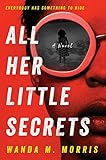 After I started this book 13 years ago, I put it down,” says Wanda M. Morris, speaking of All Her Little Secrets (Morrow, Nov.). “I convinced myself nobody was going to want to read a story about a 40-ish Black woman who has to bring down a group of awful people.”
After I started this book 13 years ago, I put it down,” says Wanda M. Morris, speaking of All Her Little Secrets (Morrow, Nov.). “I convinced myself nobody was going to want to read a story about a 40-ish Black woman who has to bring down a group of awful people.”
Morris continued her career as a corporate lawyer in Atlanta, where she has lived and worked for the past two decades, and where the book is set. It follows a woman named Ellice Littlejohn who has a corporate counsel job and discovers her boss’s dead body, with an apparent self-inflicted gunshot wound.
Ellice and her boss had been having an affair, and he’d asked her to meet him that morning. As the plot unfolds, readers will be reminded of John Grisham’s The Firm for the way Ellice uncovers criminal activity at the company and confronts an ethical dilemma.
After a health scare several years ago, Morris realized it was time to finish the project. “I thought, I’m in this high-pressure job and I have a family and I’m trying to do all these things and be all these things to everyone else,” she recalls. “And what am I doing for me?”
Morris’s longtime interest in writing was partly what made her want to become a lawyer. She reads widely, from biographies to poetry to literary fiction, but she’s mainly drawn to mysteries. “I like that whole figuring out the puzzle,” she says. But she hungered for stories that featured smart Black female protagonists.
“I like the idea of, you know, a Black woman chasing down bad guys in dark office towers,” Morris says. “But I just didn’t see a lot of books like that on the shelf. I think Toni Morrison probably launched a lot of careers when she said, ‘If there’s a book that you want to read, but it hasn’t been written yet, then you must write it.’ And so I did.”
Sang Young Park: A Cosmopolitan Romance
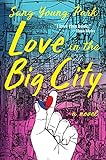 Alexander Chee turned more than a few heads this past winter when he interviewed Korean writer Sang Young Park and announced on Twitter that Park’s Love in the Big City (Grove, Nov.; trans. from the Korean by Anton Hur) was “the first gay novel published in South Korea,” where it appeared in 2019. Previously, Hur has heralded the work of Park’s queer South Korean predecessors.
Alexander Chee turned more than a few heads this past winter when he interviewed Korean writer Sang Young Park and announced on Twitter that Park’s Love in the Big City (Grove, Nov.; trans. from the Korean by Anton Hur) was “the first gay novel published in South Korea,” where it appeared in 2019. Previously, Hur has heralded the work of Park’s queer South Korean predecessors.
“There are things that would be very relatable for American millennial readers, like an experience someone could be having in Brooklyn,” says Peter Blackstock, editor at Grove. “And then there’s the dimension of mandatory military service.”
Early on, the narrator recounts how he has a female friend send him love letters while in boot camp, so his fellow trainees won’t think he’s gay. Later, back in Seoul, he has a string of sexual encounters until he finds love.
For Park, Seoul loomed in his early years as a promise of liberation. “I was raised in Daegu,” he says via his translator, Hur, “which is notorious for being conservative. Throughout my teenage years all I could dream of was escaping.” After leaving to study at Sungkyunkwan University, he found in Seoul “a good place for anyone in the minority to meet others anonymously and stay hidden in the crowds.”
As a writer, Park was inspired by Han Kang’s The Vegetarian, as well as by French writers such as Annie Ernaux and Margeurite Duras, and he also drew on Korean and American pop culture. His story “Searching for Paris Hilton” won him a debut writer prize. “Maybe Paris Hilton herself was a deeply inspirational figure to me,” he jokes.
He hopes American readers will dive into the Korean references in his work. “I mention a lot of K-pop acts that are not BTS and Blackpink, who are already super famous in America, so I hope readers check them out,” Park says.
Blackstock notes that Grove editorial assistant Yvonne Cha, who read the whole book in Korean, was instrumental to the acquisition, and says they hope to reach an audience of Korean American readers. “It was really cool to have her make the case,” he adds.
Javier Serena: Books Nobody Wants to Read
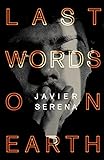 What if a blockbuster author of the Spanish-speaking world, whose stature reached mythic proportions just before he died, had toiled for years in obscurity because his early work wasn’t all that great? Spanish writer Javier Serena explores this question in Last Words on Earth (Open Letter, Sept.; trans. from the Spanish by Katie Whittemore), about a Roberto Bolaño-esque writer named Ricardo Funes.
What if a blockbuster author of the Spanish-speaking world, whose stature reached mythic proportions just before he died, had toiled for years in obscurity because his early work wasn’t all that great? Spanish writer Javier Serena explores this question in Last Words on Earth (Open Letter, Sept.; trans. from the Spanish by Katie Whittemore), about a Roberto Bolaño-esque writer named Ricardo Funes.
Asked about how the book was received in Spain, where it was first published in 2017, Serena, who aspired to become a writer as Bolaño’s work began to make a splash in the late 1990s, says via Whittemore, “Bolaño is still a delicate topic among the Spanish literary elite. He’s still treated with kid gloves by the people who were close to him. It’s not a topic that people just jump into.”
At least not in Madrid, where Serena lives and works for Latin American cultural exchange program, or Barcelona, near where Bolaño lived when he was in Spain. But Chad Post, publisher and editor at Open Letter, was more than happy to take it on. “It’s an incredibly moving book,” says Post. “I think it really hits home with people who work in creative fields where you don’t know where your success and value is going to come from and at what point in time.”
Post received a sample from Whittemore before the 2019 AWP conference in Portland, Ore., and then at the conference, Whittemore told him about Serena’s other book, Atila, about the writer Aliocha Coll, and a third forthcoming in Spanish. “So we started conceiving of this as a three-book project that groups together novels about the writing life and an unwavering commitment to your art and how that plays out for people,” Post says.
Serena wants to make clear that his character Funes is not Bolaño, but says he was inspired by the gulf between Bolaño’s day-to-day life and the image he’d cultivated. “We like to think of him as this sort of like punk hippie writer on the margins, but for a while, he was just like, dithering around this town and trying to write books that nobody wanted to read.”
This piece was produced in partnership with Publishers Weekly.

